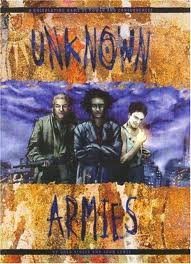What do you think?
Rate this book


Hardcover
First published January 1, 1999
Everybody hears things on the street. Some of them might even be true. Like these:
Every single president of the United States has had a glass eye. The same glass eye.
Planes do not actually fly. It is a very elaborate hoax created because the general public does not understand or trust quantum teleportation.
Those games kids play—“step on a crack” and all that— are actually rituals that do stuff, but you’ve really got to believe in them. Kids believe in them, but don’t know what the rituals really do. That’s why kids can survive...
There is a cabal operating in fast food restaurants who want to take over the world by drugging the most popular fast food with powerful magical drugs.
The internet is one big engine. The faster the information flows, the more power it generates. If anyone could find out how to harness this power they could rule the world.
Brendan Behan’s pint glass sits behind the bar in a Dublin pub. Any who drink from it have words flow from them, but at what price?
Nearly every nursery rhyme originated as teaching tools for magicians. You don’t even want to know the magickal meaning of “Three Blind Mice.”
There’s a tape floating around containing a ritual to produce a soundtrack to the caster’s life. The intention was to never again miss anything suspicious or ignore a romantic moment. At the end there is only a long, eerie note—and then static.
There’s a sandwich shop in Atlanta where, if you order the special, along with a hot beverage, they include a small slip of paper telling you the date of your death. Most people just throw it away or eat it by accident.
There’s a kid in Little Rock, Arkansas who gains magical power from boredom.
The final scores of every year’s Superbowl are part of an ever-changing numerology formula that can start and stop wars.
Butane lighters with occult symbology contain listening devices in the bases. The company putting them out is trying to spy into the occult underground with these devices.
Aliens from Proxima Centauri have been living among us now for years, but in the last few months they’ve all started leaving.